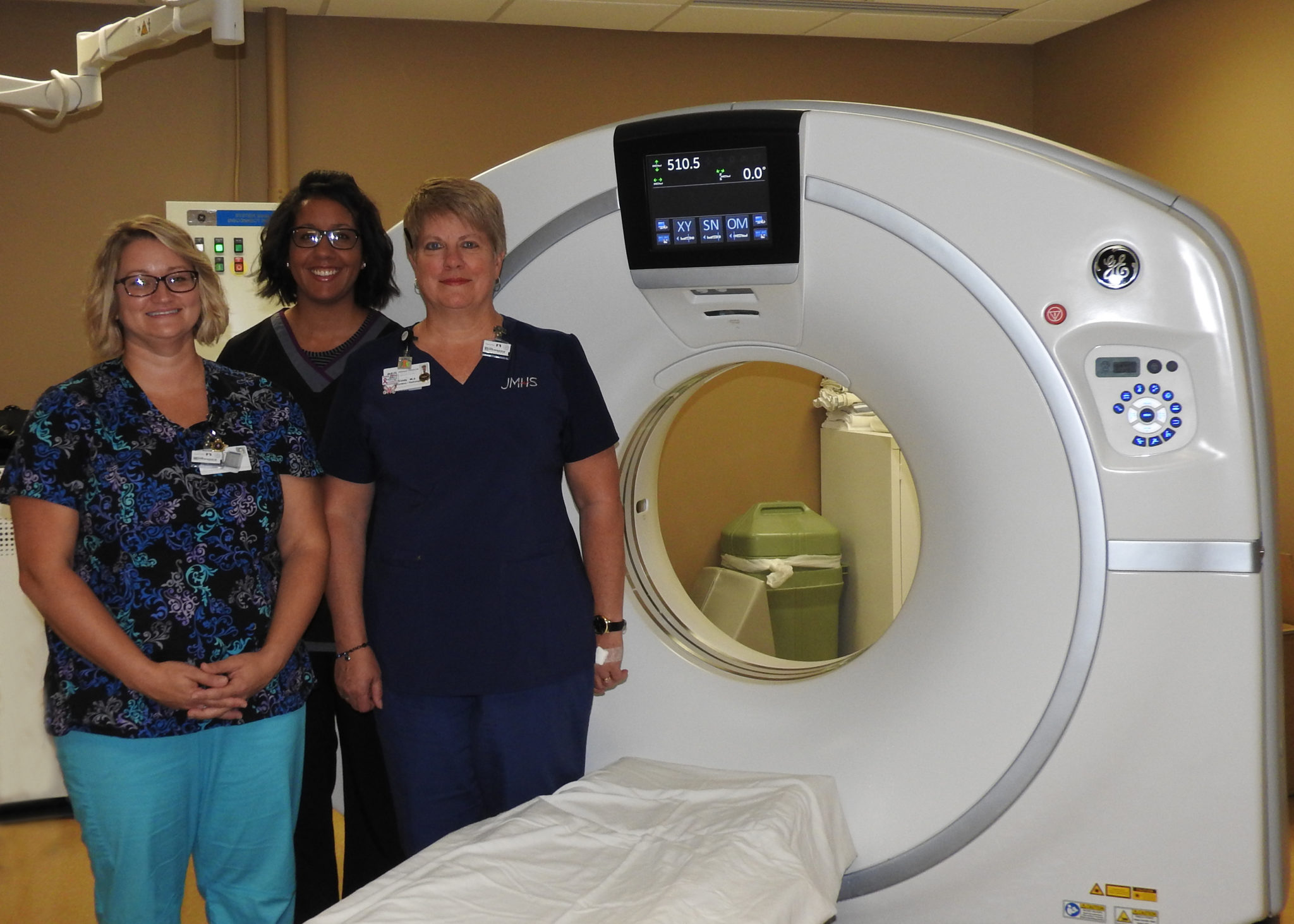
Most patients at Johnson Memorial Health Services (JMHS) won’t notice the CT Scanner was recently updated. However, moving from a 16-slice to a 64-slice CT Scanner is a significant upgrade that will greatly benefit both providers and patients. Besides being quick and simple for the patient and providing greater diagnostic capabilities, one of the most important features, is the reduction of radiation from that of previous scanners.
“Patients that receive scans here, at home, are just as high quality as the scans they would receive in bigger hospitals,” said Julie Hogrefe, JMHS Radiology Manager. “For patients transferred to another facility for treatment, this means they won’t need a second CT Scan allowing them to get the treatment they need faster.”
Computerized Tomography or CT scan is among the most valuable diagnostic imaging tools in modern medicine. Combining X-ray images from 64 different angles or slices, providers can see clear images of bones, blood vessels, and soft tissue. CT scans can be used to diagnose disease or life-threatening illnesses associated with chest pain abdominal pain, trouble breathing, stroke, and cardiovascular disease.
The GE Revolution EVO 64-slice imaging provides higher degrees of resolution, clarity, and definition. This can be critical to any patient, but especially for older patients with low bone density or osteoporosis. For this type of patient, fractures often cannot be diagnosed using X-ray technology alone. However, using the CT scan’s high resolution, providers can better visualize fractures that may not have been seen in other films, which leads to a quicker diagnosis, treatment, and recovery for patients.
JMHS was able to purchase the state-of-the-art 64-slice CT Scanner with a $400,000 grant award from the Leona M. and Harry B. Helmsley Charitable Trust’s Rural Healthcare Program. JMHS was one of 41 grant recipients across the region to benefit from the latest round of funding to purchase CT scanners. Helmsley’s Rural Healthcare Program has granted over $30 million to support the purchase of new, 32-slice or higher CT scanners at Critical Access Hospitals in a seven-state region.
